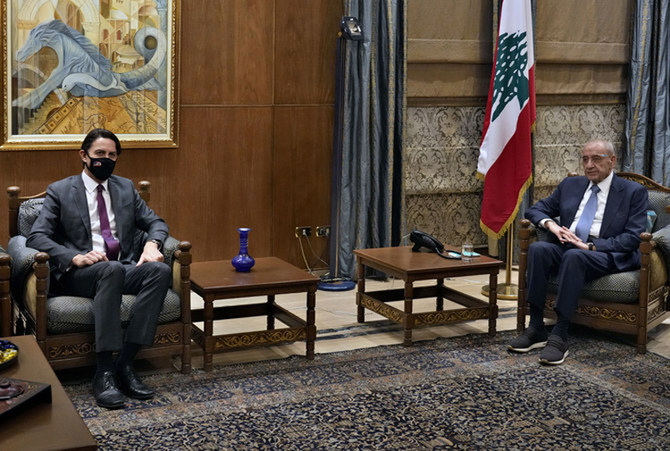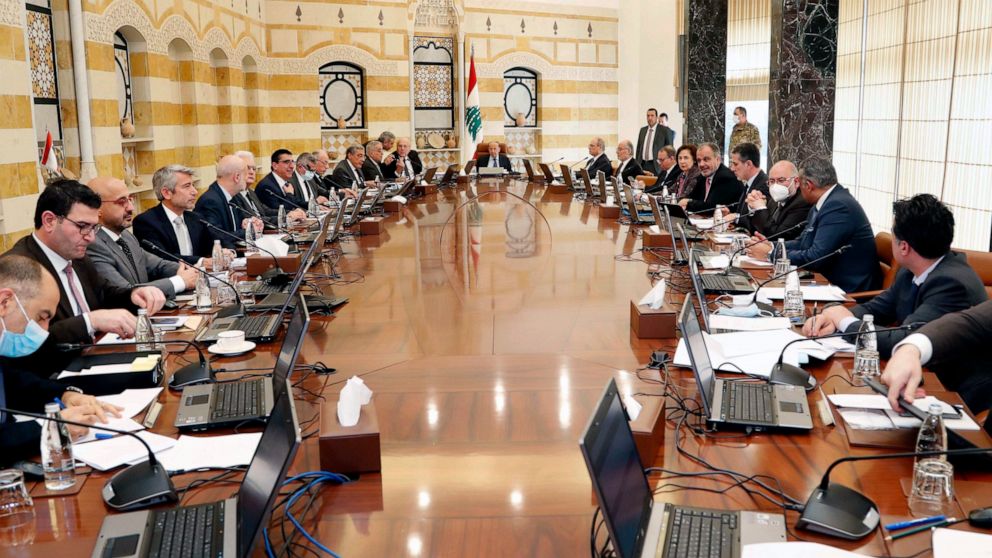
سجعان قزي
@AzziSejean
ليس الموارنةُ أبناءَ ممالكَ وإمبراطوريّاتٍ وسلطناتٍ، لكنّهم واجَهوا الممالكَ والإمبراطوريّاتِ والسَلْطناتِ. هم أبناءُ الإيمانِ وآباءُ المقاومة. آمَنوا باللهِ والإنسانِ والأرض، وقاوموا الظُلمَ والاضْطهاد. الصليبُ رمزُهم والقيامةُ قَدَرُهم. الفداءُ رسالتُهم والحياةُ مُشتَهاهُم. الاستسلامُ خطيئةٌ لا يَقترِفونَها والسلامُ فضيلةٌ يَنشُدونَها. خطُّ سيرِهم هو الحرّيةُ. مهما تَعرّجَ في الأمكنةِ يَستمرُّ قَويمًا في الأزمنة. سَلكَه الموارنةُ غابرًا وحديثًا بين الأشواكِ والتضحياتِ والشهداءِ والأمجاد. الحريّةُ هي دائمًا وطنهُم الأمّ. هي الريشةُ التي ترسُمُ حدودَ وجودِهم ومعيارَ علاقتِهم مع الآخَرين. نَزحوا في هذه الأمّةِ من بقعةٍ إلى أُخرى ليَبقَوا في ظلالِ الحرّيةِ، كما يَتبعُ البَحّارةُ نجمةَ الصُبح، والغِزلانُ ينابيعَ المياه، والطيورُ ربيعَ النسَمات.
نَشَأت المارونيّةُ بداياتِ القرنِ الخامسِ على مفهومِ القيمِ. والتزَمت الجماعةُ المارونيّةُ نمطَ حياةٍ مميَّزًا يلتقي مع إيمانِها باللهِ وبتعاليمِ الإنجيل. فالقديسُ مارون كان ناسِكًا لا ملِكًا، ومثالًا لا فيلسوفًا. نمطُ حياتِه كان هو الفلسفةَ والكلمةَ والموعِظَة. النُسْكُ أَزْهرَ شَعبًا مؤسِّسًا في لبنان، وبنّاءً في العالم العربي، وبارزًا في العالم، وصامدًا في كلِّ مكان. حين واظبَ الموارنةُ على تلك الخُطى تمكّن قادتُهم الأوائل، وفي طليعتِهم البطريركيّةُ، من تأسيسِ دولةِ لبنان، وحين تواطأ بعضُ قادتِهم لاحِقًا على المفاهيمِ المارونيّةِ وثوابتِها وقيمِها وحلفائِها التاريخيّين، عرضّوا هذه الدولةَ البهيّةَ للخطر. لا يجوزُ للّذين في ما مضى سَحبوا لبنانَ من فَمِ سايكس/بيكو أن يُقْدِمَ اليومَ بعضُهم على تقديمِ لبنان إلى مؤامرةٍ إقليميّةٍ تَقضي عليه.

By Najia Houssari -- arabnews.com -- BEIRUT: Lebanese officials on Thursday began internal discussions in preparation for a response to US envoy Amos Hochstein, who has urged them to settle a maritime border dispute with Israel. Hochstein conveyed ideas for advancing the negotiations, which have been stalled for several months. After he met Prime Minister Najib Mikati on Thursday, presidential adviser and former minister Elias Abi Saab said: “We evaluated the meetings that took place, where is Lebanon's interest, and what are the next steps for this visit. There is a step forward in what the mediator presented, but nothing is final yet, and we will see how its results will be. “Some things must be completed internally, and there are things that Hochstein will present later.”
Hochstein, who is the US State Department's senior adviser for global energy security, arrived in Lebanon on Tuesday to revive talks between Lebanon and Israel over a maritime border dispute that is holding up oil and gas exploration. While the ideas he conveyed to the Lebanese side were not revealed, it was reported that he had “made a positive offer regarding Line 23, giving Lebanon the area of 860 sq. km that it demands, in addition to preserving the entire Qana field." Before leaving Lebanon on Wednesday evening, Hochstein said that Lebanon had an opportunity to reach a deal. “We are at the moment of bridging the gaps in the maritime delimitation file,” he said.
He linked reaching an agreement with addressing the economic crises that Lebanon is mired in, emphasizing that Lebanon needed to support itself. “Let's see something that works, that the reforms that are necessary are passed, are in place, and are serious, and then the international community will support Lebanon,” he said. The head of the Lebanese Phalange Party, Sami Gemayel, said in response to the visit: “In a failed state, the international negotiator must negotiate with all the political and security authorities and turn into a judge of peace among them.” Businessman Bahaa Hariri tweeted: “The time has come for the maritime border demarcation file to witness the birth of a solution that is far from the political class's quotas and the mistakes that Lebanon made as a result of its influence. “Reaching an agreement as soon as possible may be a step toward mitigating the severity of the economic collapse.”
Lebanese interior Minister Mowlawi by alarabiya.net — Lebanon on Thursday banned Bahraini opposition forces from holding two events in the country, amid …

By BASSEM MROUE Associated Press -- BEIRUT -- Lebanon’s government approved Thursday the state budget for the current year, with a 17% deficit, the prime minister said. He described the development as a first step in reforms desperately needed in the crisis-hit country. The budget will now be sent to parliament for discussion and once lawmakers approve, it will go into effect. A two-day parliament session on the budget has been scheduled for Feb. 21. For more than two years, Lebanon has been undergoing its worst economic crisis and the newly appointed government has done little to stem the meltdown. Talks with the International Monetary Fund have failed to make progress amid deep disagreements between the government, the central bank and the banking sector. Prime Minister Najib Mikati told reporters after a Cabinet meeting Thursday that the budget projects spending of 47 trillion Lebanese pounds (about $2.24 billion, according to the exchange rate on the parallel market in Lebanon), while revenues stand at 39 trillion pounds ($1.86 billion), with a deficit of about 17%. The government has been meeting almost daily since late January to discuss the budget.
It was not clear what exchange rate will be used as the official rate still stands at 1,500 Lebanese pounds to the dollar while the price on the parallel market has reached more than 21,000 pounds to the dollar. Several other rates are used for bank withdrawals amid harsh informal capital controls that deprived people of access to their savings. Critics say that the government deficit will be covered by printing money. That would lead the Lebanese pound, which has lost more than 90% of its value over the past two years, to lose even more value in the coming months. In what appears to be a move to boost budget figures, the government removed a 5 trillion Lebanese pound loan to the country’s corruption-plagued electricity company from the budget. The electricity sector, where $40 billion were wasted over the past decades, is still widely dysfunctional with power cuts reaching 22 hours a day.
Khazen History


Historical Feature:
Churches and Monasteries of the Khazen family

St. Anthony of Padua Church in Ballouneh
Mar Abda Church in Bakaatit Kanaan
Saint Michael Church in Bkaatouta
Saint Therese Church in Qolayaat
Saint Simeon Stylites (مار سمعان العامودي) Church In Ajaltoun
Virgin Mary Church (سيدة المعونات) in Sheilé
Assumption of Mary Church in Ballouneh
1 - The sword of the Maronite Prince
2 - LES KHAZEN CONSULS DE FRANCE
3 - LES MARONITES & LES KHAZEN
4 - LES MAAN & LES KHAZEN
5 - ORIGINE DE LA FAMILLE
Population Movements to Keserwan - The Khazens and The Maans
ما جاء عن الثورة في المقاطعة الكسروانية
ثورة أهالي كسروان على المشايخ الخوازنة وأسبابها
Origins of the "Prince of Maronite" Title
Growing diversity: the Khazin sheiks and the clergy in the first decades of the 18th century
Historical Members:
Barbar Beik El Khazen [English]
Patriach Toubia Kaiss El Khazen(Biography & Life Part1 Part2) (Arabic)
Patriach Youssef Dargham El Khazen (Cont'd)
Cheikh Bishara Jafal El Khazen
Patriarch Youssef Raji El Khazen
The Martyrs Cheikh Philippe & Cheikh Farid El Khazen
Cheikh Nawfal El Khazen (Consul De France)
Cheikh Hossun El Khazen (Consul De France)
Cheikh Abou-Nawfal El Khazen (Consul De France)
Cheikh Francis Abee Nader & his son Yousef
Cheikh Abou-Kanso El Khazen (Consul De France)
Cheikh Abou Nader El Khazen
Cheikh Chafic El Khazen
Cheikh Keserwan El Khazen
Cheikh Serhal El Khazen [English]
Cheikh Rafiq El Khazen [English]
Cheikh Hanna El Khazen
Cheikha Arzi El Khazen
Marie El Khazen